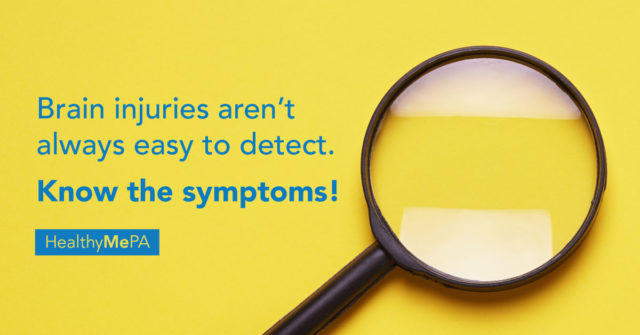
Falls are the leading cause of traumatic brain injury (TBI) in the United States, followed by being struck by or against an object, and being in a car accident.
Some brain injuries produce very noticeable symptoms, including headache, dizziness, nausea, memory loss, confusion, and vision problems, nearly immediately. But not everyone will have the same or such visible symptoms. Because there’s no one-size-fits-all test to determine if you have a brain injury, it pays for you—and those close to you—to be aware of symptoms you may have that you’re not connecting with a brain injury.
Some symptoms may not appear for hours or days, including:
- Trouble concentrating
- Continued or persistent memory loss
- Irritability and other personality changes
- Sensitivity to light and noise
- Slowed reaction time
- Sleep problems
- Mood swings, stress, anxiety, or depression
- Taste and smell changes
If you have any of these symptoms, see your doctor for an evaluation. The earlier you do, the better your chances for a full recovery. The longer a brain injury is undiagnosed, the more serious and problematic it can become for you and your family.
Treatment
Treatment for a TBI typically depends on the severity of the injury. Depending on your symptoms, a doctor may order tests such as an MRI or CT scan and neurological assessments. However, a non-emergency TBI may require only rest, pain relievers, and a break from activities that require thinking. You’ll need to be monitored closely at home for new, worsening, or persistent symptoms. Depending upon the damage, you may be referred for physical, occupational, or speech therapy, or psychological support as you return to your routine. A medically approved return to normal routines is usually a gradual process.
Sources: http://dvbic.dcoe.mil/aheadforthefuture/recognize, https://floridaphysicalmedicine.com/hidden-symptoms-brain-injuries/
